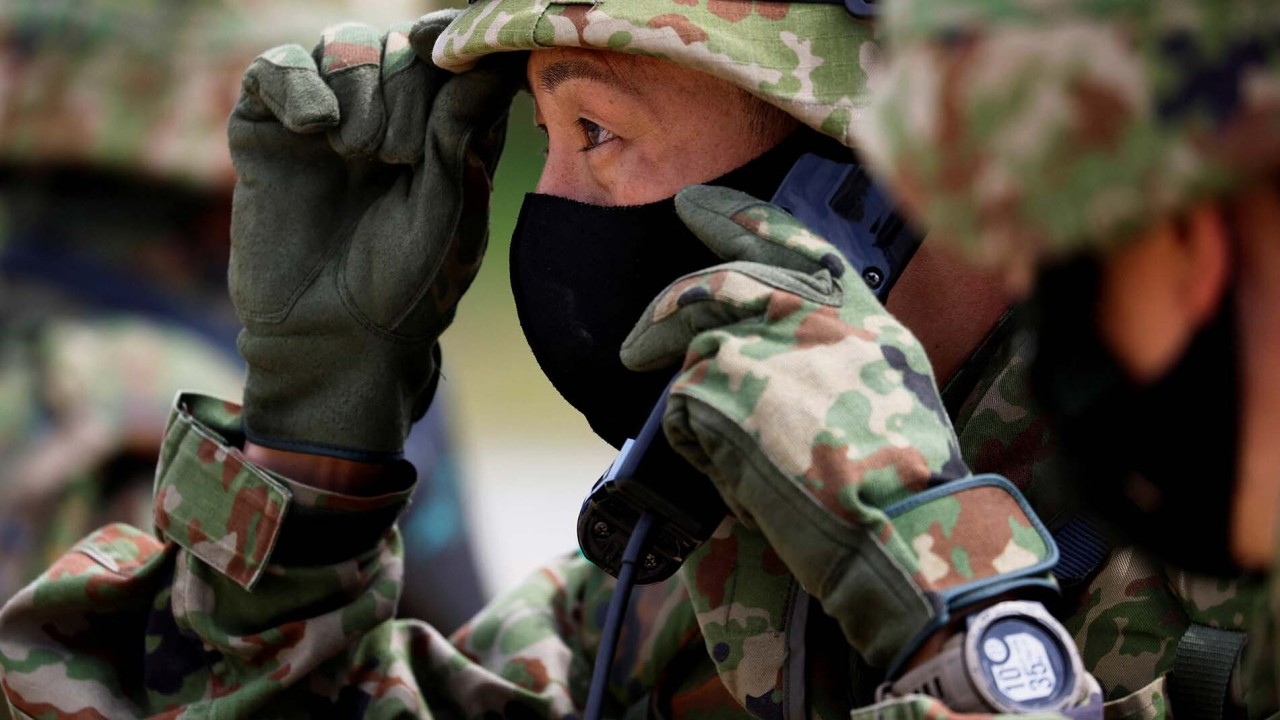
Japan won’t cap defence spending amid increased ‘anxiety’ over Russia, China, North Korea
- A ‘large increase’ in the military budget is likely, with PM Fumio Kishida facing no pushback to plans to raise it to 2 per cent of GDP
- An unpredictable North Korea and recent aggression by Russia and China have muted Japan’s domestic response against raising military spending, an observer says
The plan will be confirmed and announced before the end of the month, the Nikkei newspaper reported on Saturday.

According to the Nikkei, Japanese governments typically set a maximum ceiling on spending requests submitted by ministries for the next financial year, which starts on April 1. The aim is to stop budget requests from increasing too rapidly and further stressing the nation’s already-stretched finances. All other ministries will be expected to limit their budget demands for fiscal 2023, except the defence ministry.
“Kishida has said that a ‘significant increase’ is needed and Abe had been calling for defence spending to be effectively doubled to 2 per cent of GDP, so a large increase was always on the cards,” said Kingston.

The exact scale of the increase is still “vague”, he said, but increasing the effectiveness of outlays should be one focus of the spending of the some US$50 billion that Japan presently sets aside every year for defence.
Foreign weapons systems and equipment typically cost more than domestically developed variants and will constantly be subject to fluctuating exchange rates. Japan also pays service personnel wages that are comparatively higher than in other nations, as well as larger pensions for retirees, accounting for a higher percentage of the total defence budget than elsewhere.
Chinese coastguard overshadows Japanese mayor’s ‘symbolic’ trip to Diaoyus
“The Japanese government is almost spoiled for choice in terms of a justification for increasing defence spending,” Kingston said. “But what is interesting is that if Abe had put forward these plans when he was prime minister, there would have been a quick and harsh pushback.
“Everything that has happened in Ukraine has really put the liberal left on the back foot and altered that commitment to peace that has long been a part of the national psyche,” he said. “I had expected a more vigorous response, but it has been relatively muted.”
A wider realisation of the threat that Japan faces came with the attack on Ukraine, Kingston said, as a Russian invasion of a neighbouring sovereign state was “as unthinkable as a Chinese invasion of Taiwan”.
The militarisation of the region is undeniable, with anti-shipping and surface-to-air missile batteries already deployed on some of the most remote islands. Despite promises that it would never become a military installation when it was originally constructed, consideration is presently being given to turn Shimojishima Airport, on Miyakojima in Okinawa, into a joint civilian-military airbase.
“It is clear that Kishida was already planning to boost defence spending, but the assassination of Abe has served to put wind in his sails and even the normally extremely cautious Ministry of Finance is not now raising any objections,” Kingston pointed out.


